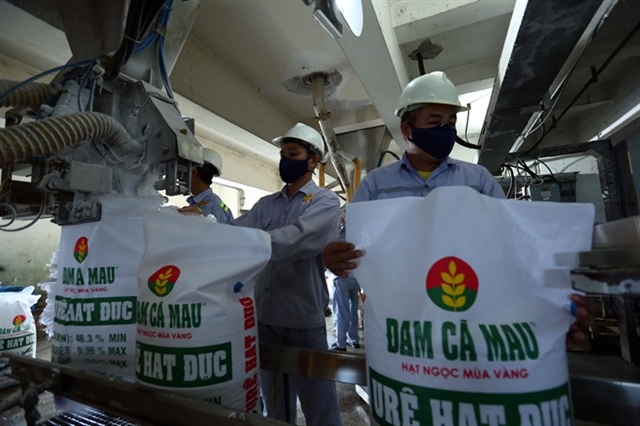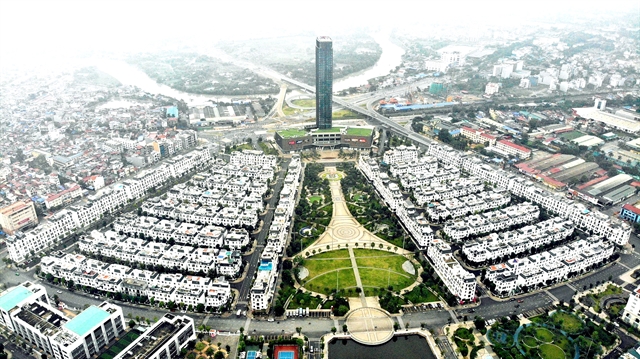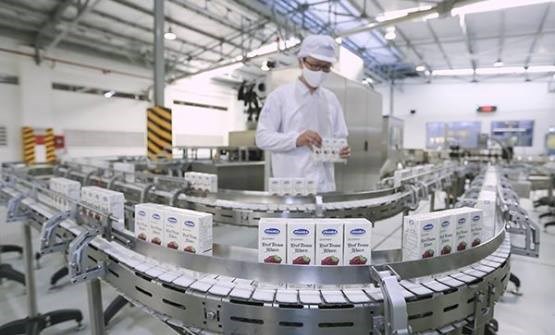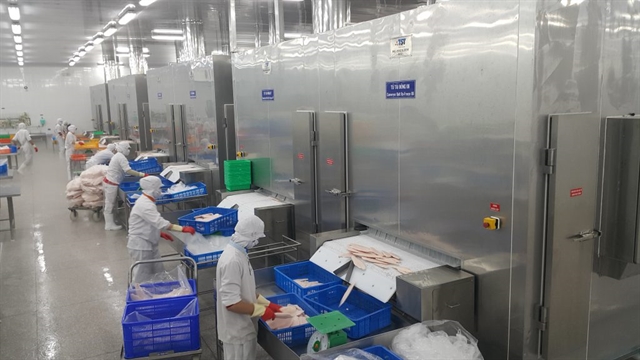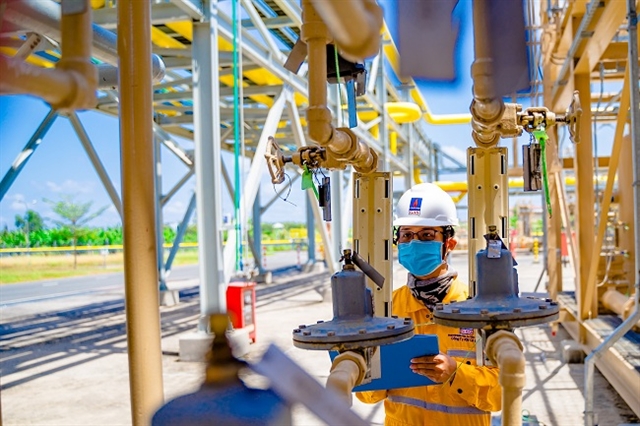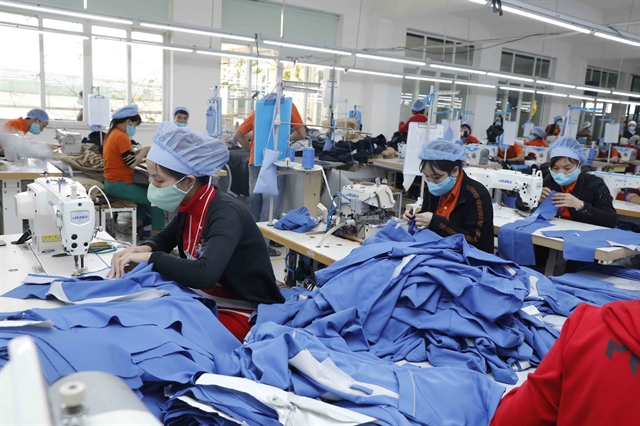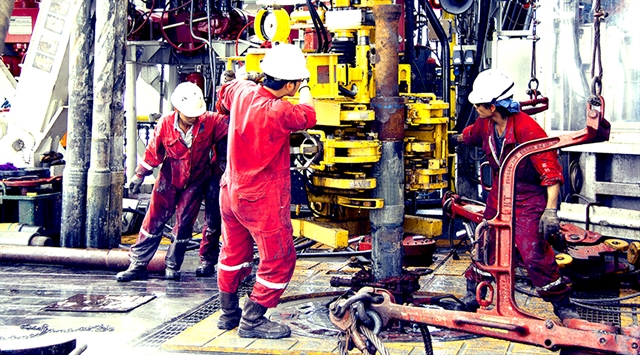
HÀ NỘI — Oil prices have continuously increased since the beginning of the year on the production cut agreement of OPEC+ and the global recovery in fuel demand. This has been reflected in the market price of oil and gas stocks, however not all businesses benefited.
In the international market, oil prices had risen more than 47 per cent in the first half of the year, resulting in higher prices of refined products. In June, Brent crude even broke over US$76 per barrel over rising concerns of a supply shortage. OPEC and its allies, led by Russia, then agreed to loosen production caps starting in July.
From the end of 2020 to the first quarter of 2021, oil demand in the Asia-Pacific region hit a peak on COVID-19 control measures. However, the outbreak since the beginning of the second quarter of the year has affected oil demand in this region.
Mixed results
Despite the higher oil price, not all oil and gas enterprises in Việt Nam benefited, the latest report of Việt Dragon Securities Corporation (VDSC) said.
Of which, for upstream companies, business results were not very positive in the first six months of the year due to the impact of COVID-19 and the stagnation of domestic oil and gas projects.
PetroVietnam Drilling & Well Services Corporation (PVD), which operates in the upstream sector, involving oil and gas exploitation, providing most of the drilling services at Petrolimex’s oil fields and also participating in international activities, reported a drop of 47 per cent year-on-year in net revenue to over VNĐ1.66 trillion in the first half of the year.
The big fall in revenue along with large provision costs caused PVD to record a net loss of VNĐ95 billion.
Similarly, PetroVietnam Technical Services Corporation (PVS)’s net revenue also declined by 35 per cent to nearly VNĐ5.7 trillion during the period, resulting in a fall of 16 per cent over last year in profit after tax to VNĐ347 billion.
Even in the same upstream sector, PVS will be less affected by oil prices than PVD because of its diversity in operations including ships, ports, floating warehouses and petroleum engineering.
However, the bright oil price outlook due to the supply-demand gap has helped the prices of PVD and PVS shares increase significantly.
On the Hồ Chí Minh Stock Exchange (HoSE), PVS shares had risen 53.2 per cent in the first six months of the year, while PVD shares climbed 27.2 per cent.
Meanwhile, for the midstream and downstream sector, companies witnessed positive business results, boosted by sustainable rallies of oil prices which translated into higher selling prices or improved gross profit margins.
Accordingly, PetroVietnam Gas JSC (PVGas, GAS) finished the first six months with net revenue of VNĐ40.27 trillion and profit after tax of nearly VNĐ4.4 trillion, up 23.2 per cent and 4.1 per cent respectively.
PVGas operates in the midstream sector, specialising in gas collection and redistribution to other firms in the market. Particularly in the second quarter, the sharp increase in oil prices boosted the company’s revenue by 45 per cent, while gross profit climbed 57.5 per cent year-on-year.
In the same segment, Petrovietnam Transportation Corporation (PV Trans, PVT) also earned VNĐ256.5 billion in profit after tax in the second quarter, up more than 8 per cent.
PV Trans said that the gain was driven by higher freight rates, new ships, cost savings and asset liquidations.
In the first half of the year, PV Trans recorded net revenue of more than VNĐ3.58 trillion, up 5.5 per cent, with profit after tax rising 30 per cent to VNĐ439 billion.
Bình Sơn Refining and Petrochemical Company Limited (BRS), the unit that manages and operates production and business activities of Dung Quất Oil Refinery, posted significant growth on high oil prices.
As it had to continuously produce and process products, Bình Sơn Refinery always has to maintain a quantity of crude oil and it takes time to process crude oil to products for sale.
In the first six months, Bình Sơn Refinery’s net revenue reached over VNĐ48.9 trillion, up 54 per cent over last year. Its profit after tax was VNĐ3.58 trillion during the period, compared to a loss of more than VNĐ4.23 billion in the same period last year. Accordingly, the company has achieved 53 per cent of the output plan, 70 per cent of the revenue plan, and quadrupled the profit plan.
PetroVietnam Oil Corporation (PV OIL, OIL) which is also in the downstream sector, recorded an increase of 15 per cent year-on-year in net revenue in the second quarter of 2021 to VNĐ13.4 trillion. Deducting expenses, PV OIL’s after-tax profit was nearly VNĐ272 billion, up 45 per cent.
As of June 30, the company’s net revenue reached nearly VNĐ25.2 billion, down 14 per cent over last year. But it posted a net profit of VNĐ359 billion, while it lost VNĐ241 billion in the same period last year.
In its explanation, the company stated that the high profit was due to the fluctuations of gasoline prices in the international market, with the average Brent crude oil prices surging 133 per cent year-on-year in the second quarter of 2021, from $29.56 per barrel to $68.97. — VNS

